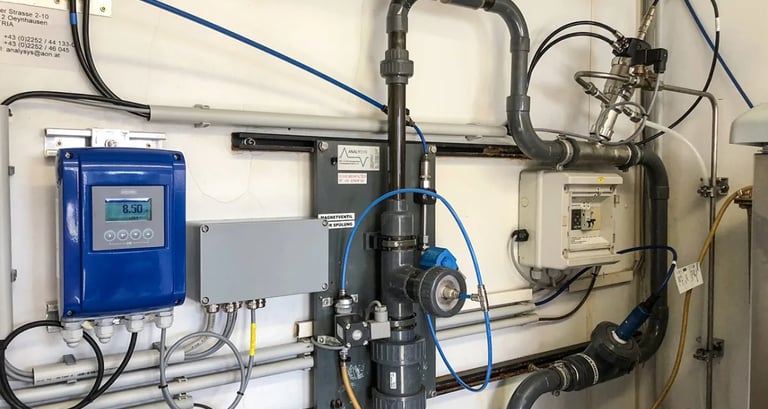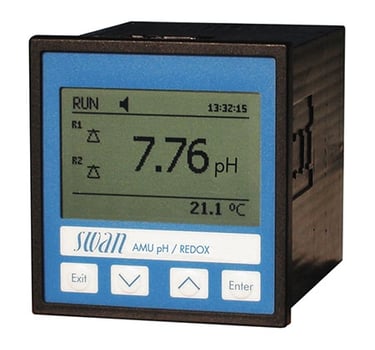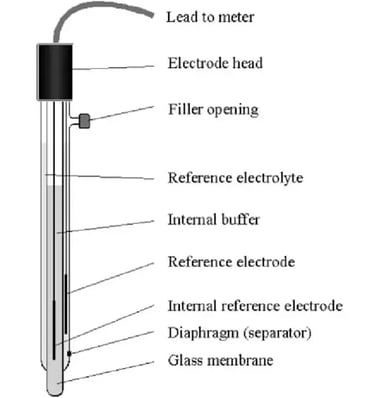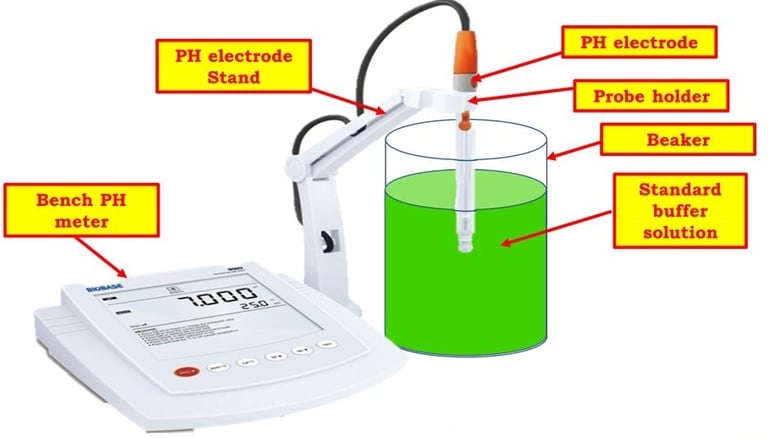EVERYTHING YOU NEED TO KNOW ABOUT PH METERS IN INDUSTRY
Learn everything about pH meters, their working, calibration, and industrial applications in water treatment, pharmaceuticals, food, and chemical industries. Discover why accurate pH measurement is essential for quality, safety and efficiency.


INTRODUCTION
In modern industries, pH meters play a crucial role in monitoring and maintaining the quality of processes. A pH meter is an electronic device used to measure the hydrogen ion concentration in a solution, indicating its acidity or alkalinity. From water treatment plants to pharmaceutical manufacturing, accurate pH measurement ensures safety, compliance, and efficiency.
WHAT IS A PH METER?
A pH meter consists of a measuring electrode, a reference electrode, and a high-impedance amplifier. The probe senses the hydrogen ion activity and displays the pH value on a digital screen. It provides a precise reading compared to traditional paper indicators, making it the most reliable tool for industrial and laboratory applications.
INDUSTRIAL APPLICATIONS OF PH METERS
Water & Wastewater Treatment – Monitoring pH levels to ensure safe drinking water and compliance with environmental standards.
Food & Beverage Industry – Controlling fermentation, flavor balance, and quality assurance.
Pharmaceutical Manufacturing – Ensuring accuracy in drug formulation and chemical reactions.
Chemical Industry – Maintaining process stability and product consistency.
Agriculture & Soil Testing – Measuring soil pH for better crop yield and nutrient management.
HOW TO CALIBRATE A PH METER?
For accurate results, calibration is essential.
Use standard buffer solutions (pH 4, pH 7, and pH 10).
Rinse the electrode with distilled water before testing.
Calibrate regularly depending on usage frequency.
BENEFITS OF USING A PH METER
High accuracy compared to pH paper.
Fast and reliable results for real-time monitoring.
Essential for process automation in industries.
Long-term cost savings by reducing errors and rework.
CONCLUSION
A pH meter is not just a measuring tool but a critical component of industrial quality control. Whether in water treatment, pharmaceuticals, or food production, maintaining the right pH ensures safety, efficiency, and compliance.








